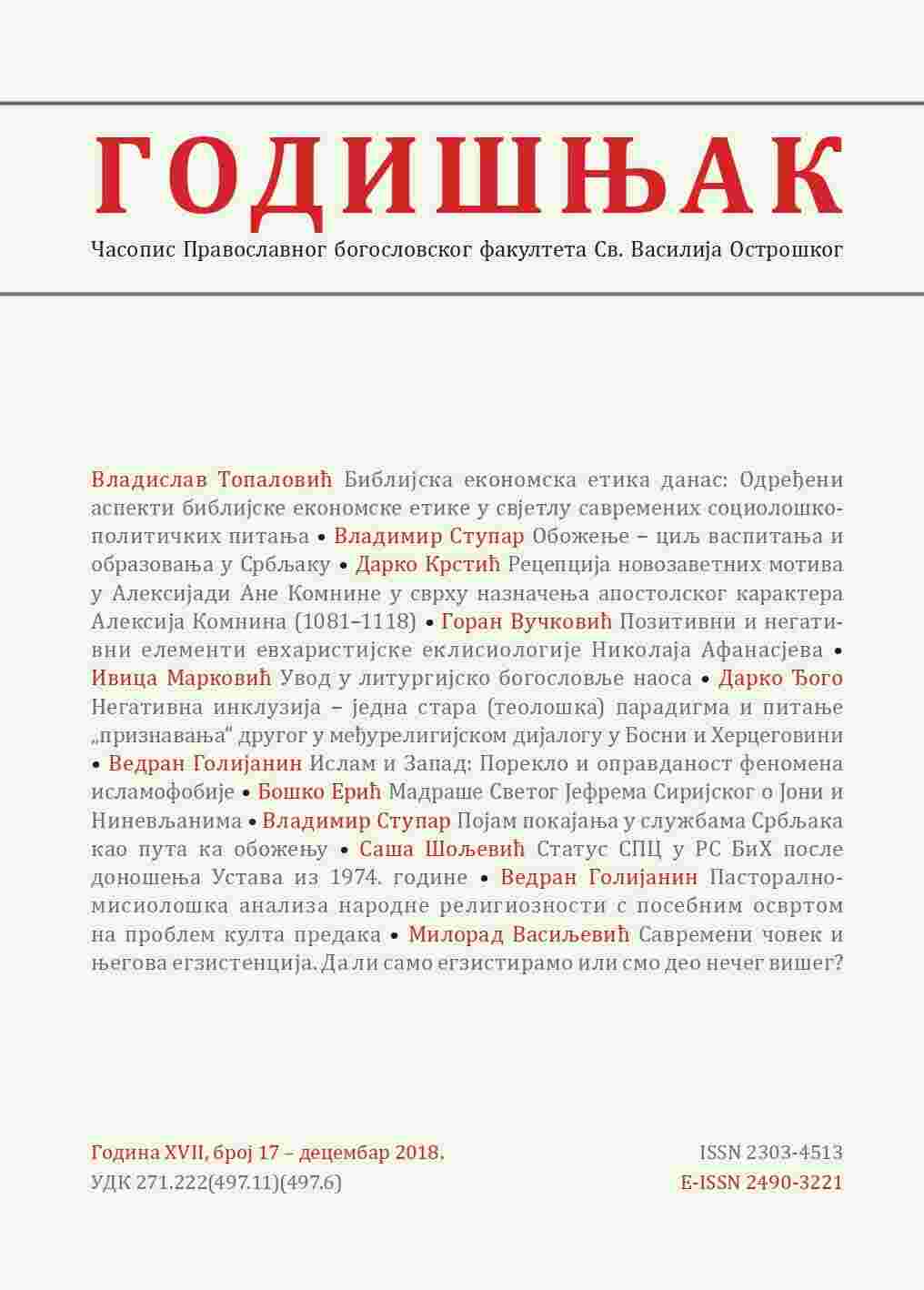Негативна инклузија – једна стара (теолошка) парадигма и питање „признавања“ другог у међурелигијском дијалогу у Босни и Херцеговини
A Negative Inclusion – an Old (Theological) Paradigm and the Issue of “Recognizing” the Other in Interreligious Dialgoue in Bosnia and Herzegovina
Author(s): Darko ĐogoSubject(s): Comparative Studies of Religion, Biblical studies, Eastern Orthodoxy, Sociology of Religion
Published by: Православни богословски факултет „Свети Василије Острошки“
Keywords: Interreligious dialogue; Muslims; Christians; Jews; the people of the book; tahrif; negative inclusion; biblical criticism;
Summary/Abstract: Interreligious dialogue in Bosnia and Herzegovina was up until now mostly conducted without bringing theological content of religious communities to its core, i.e. it was conducted as a kind of interreligious rhetoric. The author calls for re-actualizing of theological themes as key elements in interfaith dialogue, especially in the dialogue between Christians and Muslims. Starting from the objection of certain Islamic scholars that Muslims are essentially unequal in the dialogue because their place in sacred histories of Judaism and Christianity is unrecognized, the author shows that Muslims themselves usually view Jews and Christians through the prism of “negative inclusion“ – by including the other in their own view of sacred history, while in the same time emphasizing his“hereticity. The author pays special attention to the notion of “tahrif” – “corruption“ of modern holy scriptures of Judaism and Christianity, which is essential part of often heard recognition of the“people of the book in interreligious rhetoric of Muslims.
Journal: Годишњак
- Issue Year: 2018
- Issue No: 17
- Page Range: 62-77
- Page Count: 16
- Language: Serbian

